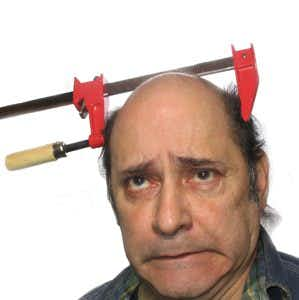
Although heart disease and cancer remain our big killers, nothing spells dread more than a diagnosis of dementia. Losing the ability to think, remember or function is devastating to the individual as well as to friends and family. That’s why this reader’s question about sleeping pills is so poignant:
Q. I saw a physician’s assistant the other day for depression, insomnia and anxiety. Several years ago a doctor prescribed Ativan and Ambien (and later Lunesta).
At the time he also had me on an antidepressant medication that I later weaned off. I may take an Ativan once during the week and a Lunesta one weekend night, just to help me catch up on sleep.
Sleeping Pills and Alzheimer’s:
This PA refused to prescribe zolpidem (Ambien) or eszopiclone (Lunesta) because studies have linked those drugs to Alzheimer’s. She said that even the few pills I take could put me at risk.
Instead she gave me a prescription for suvorexant (Belsomra). My doctor gave me a sample when it first came out and I didn’t find it helpful. I’ve also read that it hasn’t been shown to help people get to sleep much faster. In addition, it’s brand new and outrageously expensive. Would you be able to provide some insight on this drug?
A. People with insomnia are caught in a terrible bind. They are told that insufficient sleep may increase their risk for problems with memory and concentration. On the other hand, some studies have linked certain sleeping pills to dementia (BMJ, online, Sept. 27, 2012; Medicine, May, 2015), though this connection is controversial (BMJ, online, Feb. 2, 2016).
What’s the Story on Suvorexant (Belsomra)?
Belsomra is a pricey new prescription sleeping pill. According to Consumer Reports, people taking this drug fell asleep about six minutes faster, on average, than those taking placebo. They slept about 16 minutes longer, but were more likely to feel drowsy the next day.
To learn more about Belsomra and other sleep solutions, you may be interested in downloading our newly revised 16-page Guide to Getting a Good Night’s Sleep. You will learn inside details about other sleeping pills as well as non-drug solutions to insomnia.
A review of consumer complaints about Belsomra submitted to the FDA shows that they include ineffectiveness, disrupted sleep, agitation and next day confusion.
If you have tried Belsomra, please share your experience in the comment section below and let us know how it has worked for you. If you have come up with another solution for insomnia please share your story. And consider our newly revised 16-page Guide to Getting a Good Night’s Sleep.

